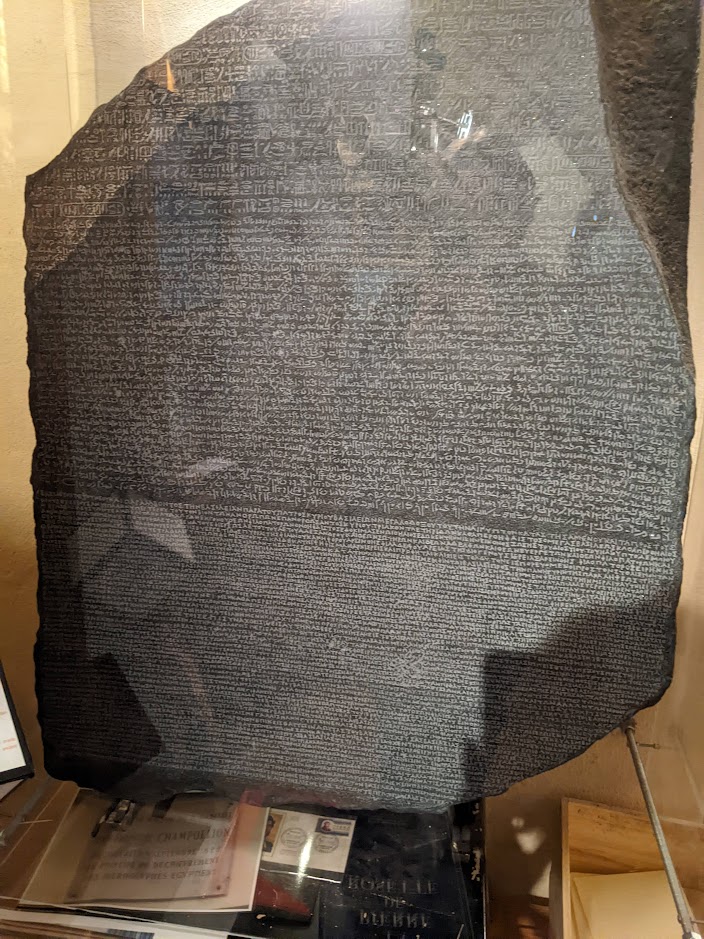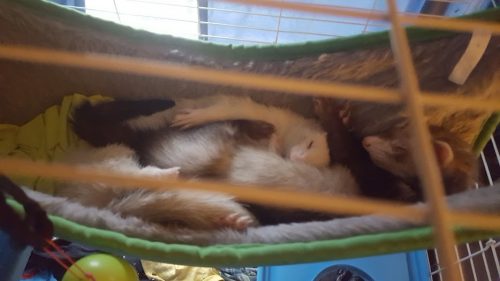Having wandered down a random street in Paris on our way to the Métro this holiday, my wife and I stumbled upon a little museum called Mundolingua, dedicated to all things linguistic. I’m glad we took the random turn we did (and that the museum was open on Christmas day!), because we ended up spending a few hours exploring each of the exhibits.
Like most places in Paris, the museum economizes on space, meaning ever square metre of the museum is filled to the brim with interesting items. This wonderful gem of a museum boasts dozens of exhibits and hundreds of items on a wide array of linguistic topics, including:
- Language acquisition
- Phonetics and phonology
- Linguistic variation
- Endangered languages
- Writing systems
- Gesture
- Sign language
- Language technologies
- Historical linguistics
- Constructed languages
There are multilingual audio guides, interactive exhibits (including “guess the language” quizzes), and even a replica of the Rosetta Stone!

If you should find yourself in Paris, I can’t recommend Mundolingua highly enough. It’s a great institution for educating the general public about language and linguistics.


